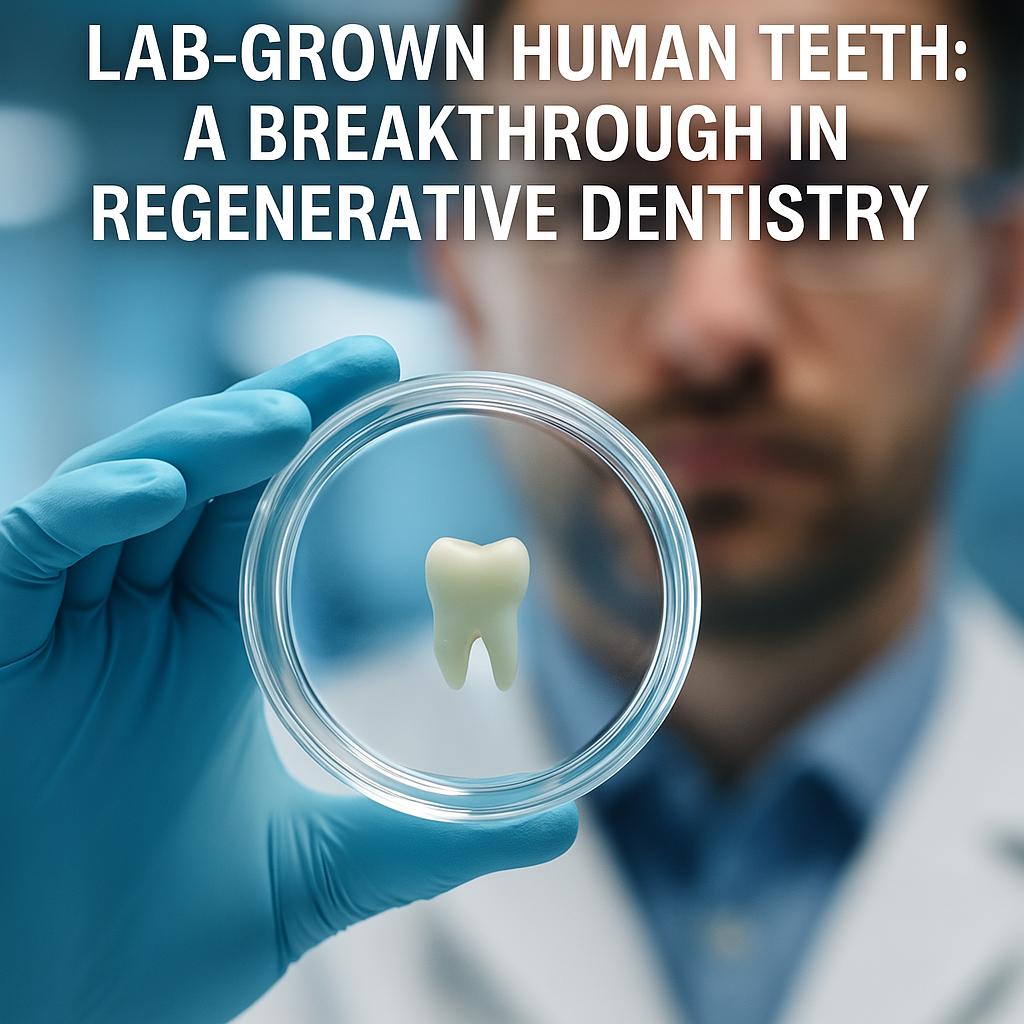In a pioneering advancement for regenerative medicine, scientists at King’s College London have successfully cultivated human teeth in a laboratory setting. This development holds the potential to transform dental care by enabling patients to regenerate lost teeth naturally, offering an alternative to traditional fillings and implants.

Mimicking Natural Tooth Development
The research team engineered a biomaterial that closely replicates the natural environment of tooth development. This innovation allows cells to communicate effectively, initiating the formation of a tooth. Dr Ana Angelova-Volponi, Director of Regenerative Dentistry at King’s College London, remarked that this breakthrough could “revolutionise dental care” by providing sustainable and biologically compatible solutions for tooth repair and regeneration.
Advantages Over Traditional Dental Solutions
Current dental treatments, such as fillings and implants, have limitations. Fillings may weaken tooth structure over time and have a limited lifespan, while implants require invasive procedures and may not fully restore natural tooth function. In contrast, lab-grown teeth derived from a patient’s own cells could integrate seamlessly into the jawbone, function like natural teeth, and possess the ability to repair themselves.
Potential Applications and Future Directions
The researchers are exploring two primary approaches for implementing this technology:I
- In Situ Growth: Transplanting early-stage tooth cells directly into the patient’s jaw, allowing the tooth to develop naturally within the mouth.
- Ex Vivo Cultivation: Growing a complete tooth in the laboratory before implanting it into the patient’s mouth.
Both methods aim to initiate the early stages of tooth development in a controlled environment, ensuring successful integration and functionality.
Implications for Dental Care
This breakthrough could significantly impact the field of dentistry by providing a more natural and enduring solution for tooth loss. By harnessing the body’s regenerative capabilities, patients may benefit from treatments that reduce the need for artificial materials and invasive procedures. As research progresses, this technology may become a standard practice in dental clinics, offering patients improved outcomes and quality of life.

